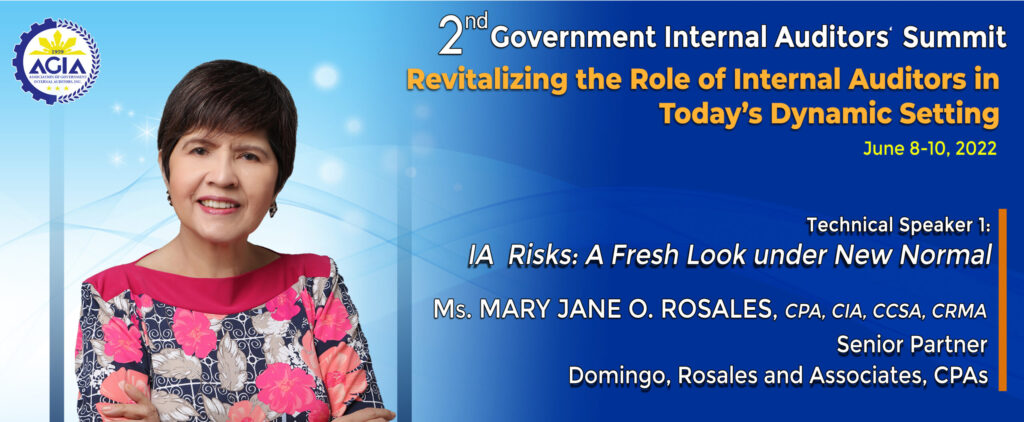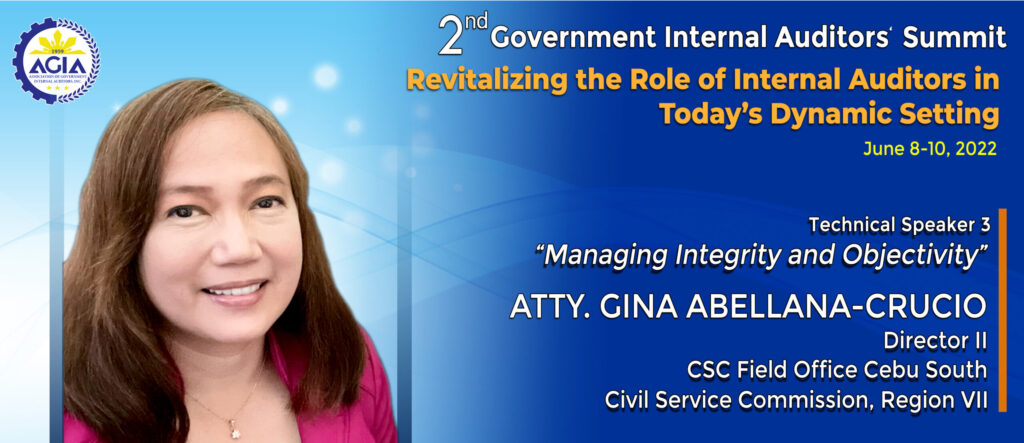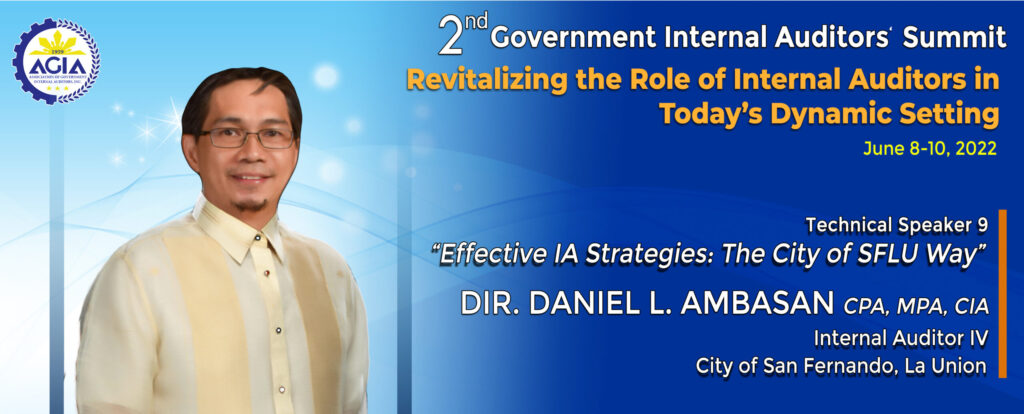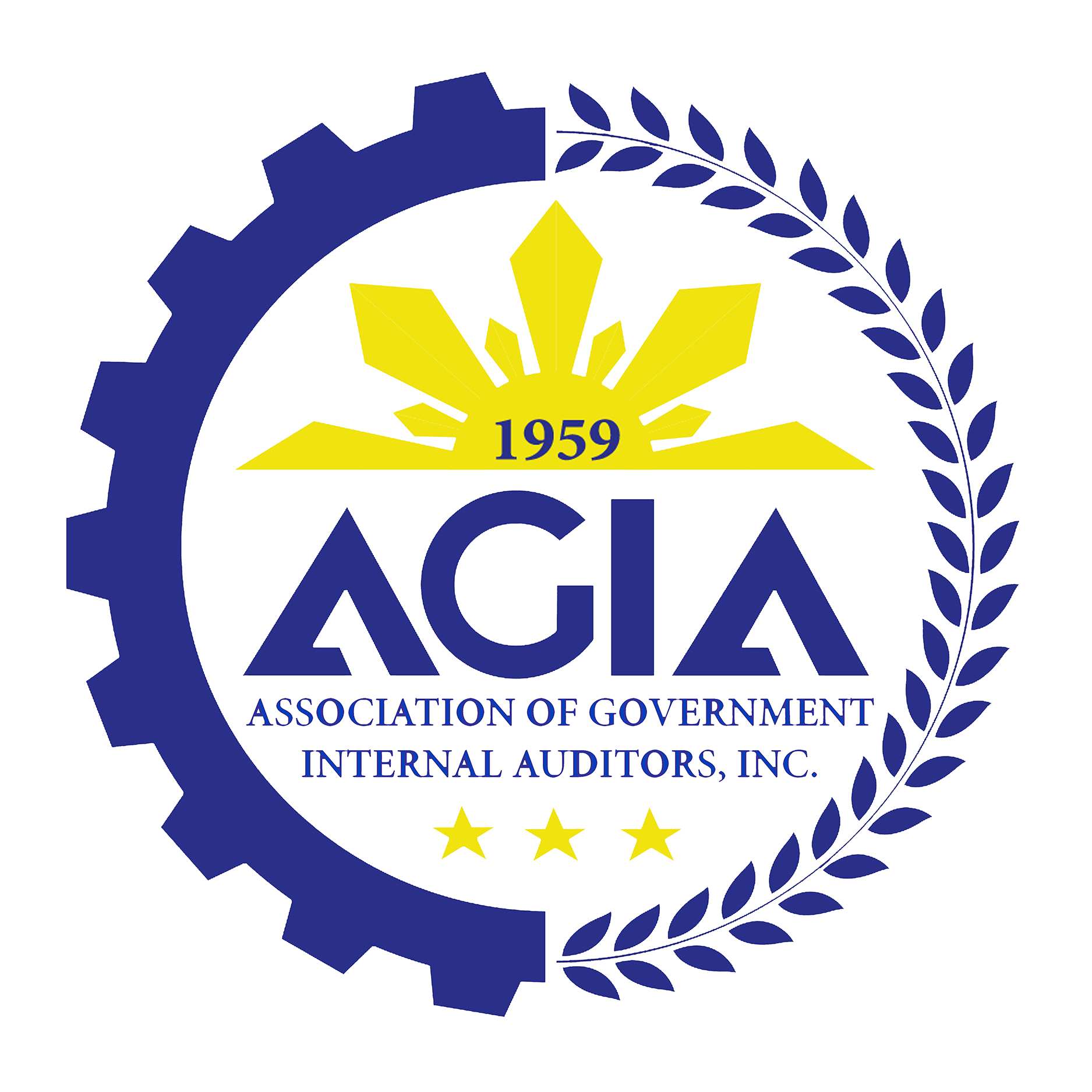By Dir. Ma. Vene R. Tacuboy
The Association of Government Internal Auditors (AGIA) successfully conducted the 2nd Government Internal Auditors (GIA) Summit, which featured eminent resource speakers.
The summit was held virtually on July 8–10, 2022, with the theme “Revitalizing the Role of Internal Auditors in Today’s Dynamic Setting.” It was attended by participants from National Government Agencies (NGAs), Government-Owned and Controlled Corporations (GOCCs)/Government Financial Institutions (GFIs), Local Government Units (LGUs), and State Universities and Colleges (SUCs).

In her opening remarks, Director Ma. Vene R. Tacuboy, Chairperson of the 2022 GIA Summit, highlighted that the summit is specifically designed to provide internal auditors (IA) with awareness regarding skills, trends, innovations, and practices that will be useful in the delivery of service to their respective organizations, as well as adequate knowledge to provide solutions to the challenges they encounter, whether at work or in personal life.
Furthermore, President Director Marissa N. Fabricante emphasizes that the key is to be aware and always ready to do what matters for the organization’s success and to re-adjust the rules and functions of internal auditing for a more stable and dynamic environment.

Moving forward, the guest speaker, Hon. Ricojudge Janvier M. Echiverri provides an uplifting message. He encouraged everyone to empower internal auditors in LGUs and barangays. He also advocates connecting with the global community and being responsive to technological improvements, as technology in networking and communications is vital to bridging gaps between our separate jurisdictions in the Philippines and those we engage with abroad.

Beyond the Internal Auditor's Role
The keynote speaker, Mr. Do Keun Cho, Assistant Auditor General of the Asian Development Bank (ADB), shared his dynamic ideas and the most cutting-edge tools participants can employ to carry out their tasks. Robotic Process Automation (RPA) and Artificial Intelligence (AI) are used. Assess and evaluate the numerous risks of the digital environment to effectively assess the proper measures.

They define and implement a strategic plan to manage climate risk and apply ISO 30401:2018 for an effective knowledge management system.
Key Requirements for Good Governance
We noticed a shift in the environment as we transitioned into the “new normal.” IA was making changes and refining ways to contribute to recovery and resilience efforts through its various professional disciplines and specialties. While progress has been made, there is a need to revitalize the role of the internal auditor. Here’s the brief discussion of the topics imparted by the distinguished resource speakers during the Summit:

Priming up the Summit are the insights shared by Ms. Rosales about IA risks. According to her, the government and private sector must enhance coordination efforts to survive and thrive in these severe economic downturns and recessions. Risk culture is an essential indicator of how extensively risk management policies and practices are implemented in an organization. A risk-management culture supports open and upward communication, the exchange of information, and ethical operations. A robust risk management culture fosters resilience. An organization’s remarkable resiliency will enable them to manage new and emerging risks as they unfold within the organization.

Developing the necessary traits and skills to become more effective is imperative. The quality of the results they produce at work determines their productivity. The Eisenhower matrix is the most basic method for measuring the importance and urgency of tasks. Active listening is essential for any response to be effective. You are reacting rather than acting.

Objectivity is defined as being fact-based and unaffected by personal views or feelings. The key to objectivity is to take a step back or disassociate. The code of conduct and ethical standards for public officials and employees must be followed, as well as a commitment to the public interest, professionalism, fairness, and sincerity. The four pillars of public service principles are patriotism, honesty, excellence, and spirituality.

Risk in the digital and disruptive era includes digital transformation challenges such as modernization, malice, and mandates, as well as issues and difficulties in risk management. Continuous auditing, fraud detection, data analytics, emerging technologies, and technological innovation in auditing are the main challenges. Focusing on what you want to achieve (vision clarity) and taking the risks you can measure rather than measuring the risks you take is the way forward (understanding & agility).

As data and information integrate, this also indicates an increase in cybercrime. Online scams, fraud, and identity theft were among the most commonly recorded cybercrimes. Economic losses, damage to goodwill, loss of privacy, dangers of terrorism, lawsuits and arbitration, and temporary or permanent closure are among the impacts of cyber attacks on an organization.
Relative to the implications of attacks, some factors make organizations vulnerable to attacks, such as insufficient security training, unregulated access to information, several organizational units, and a lack of security policies. Hence, to avoid these cyber attacks, organizations are advised to hold training and interventions to increase awareness, develop policies and standard operating procedures (SOPs), and implement encryption technologies such as virtual private networks (VPNs), proxy servers, and similar.

Leaders must improve their leadership skills by optimizing their technological expertise, establishing professional competencies, and experimenting with new information technologies. Speaking effectively and regularly, pushing others to strive for perfection, creating trust, helping others grow, and working in successful teams can improve interpersonal skills. Effective leaders develop responsibility and strong, productive employee relationships. Trust is the key to success and good leadership.

AFP internal audit best practices were highlighted. The confirmation audits ensured that resources were downloaded and used properly. The information drive on capability enhancement assesses and capacitates selected internal auditors and personnel participating in the internal audit. It also enhances compliance monitoring methodologies and shares best practices in monitoring audit compliance.
In addition, they conduct Audit Compliance Evaluation Reviews (ACER), which are designed to assess the merit and responsiveness of the submitted actions to assess how OTIA audit recommendations are being carried out. The internal audit of the AFP holds Monthly Audit Compliance Conferences (MACC) to examine compliance and measures taken by units and offices. Management Information Systems hired a system analyst and hardware specialist to optimize operations. The AFP conducted a quarterly Program Performance and Budget Execution Review (PPBER) for External Capability Enhancement to monitor COA and OTIA audit findings and recommendations.

The discussion focuses on the effectiveness of internal audit functions. An audit is performed to uncover issues and control gaps or management flaws and to review if control objectives are met by a specific date. A quality management system, feedback mechanism, and internal evaluation make it easier to meet goals.

As the IA continues to carry out their roles and responsibilities, they contribute to the organization’s overall success, thereby increasing their effectiveness. Professional expertise, audit work quality, organizational independence, career advancement, and top management support all contribute to the efficacy of the IA.

Automating administrative audit tasks is recommended. Managing costs and streamlining internal audit activities increases effectiveness. Automating internal audit tasks maximizes human resources, reduces repetitive labor and manual processes, and improves the government’s financial and accounting, human resource management, legal, front-line operation, and backup support. Audit recommendations and control enhancements enable us to maintain a robust internal control system.



Comments are closed